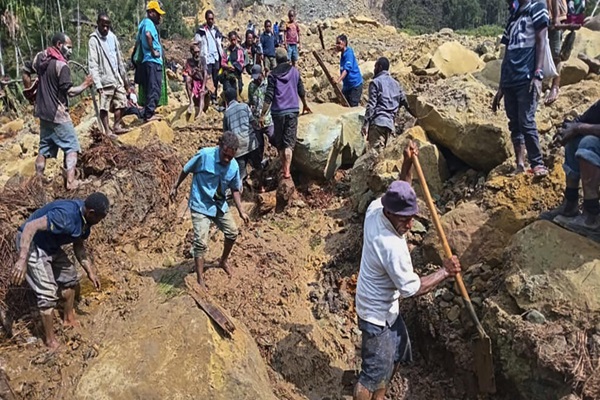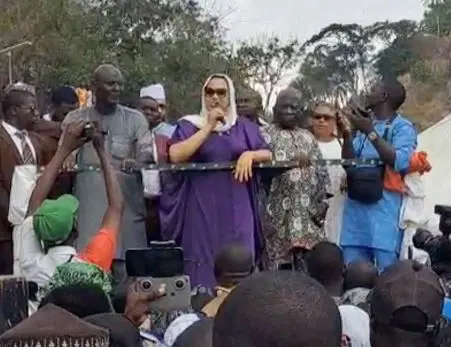Papua New Guinea's government reported that more than 2,000 people were buried in a massive landslide three days ago, with hopes of finding survivors dwindling due to treacherous terrain and challenges in transporting aid. The National Disaster Centre conveyed the updated toll in a letter to the U.N., though a separate U.N. agency estimated the possible death toll to be over 670, reflecting the difficulty in obtaining an accurate population count in the remote area.
The landslide struck six villages in the Maip-Mulitaka district in the country's north while most residents were asleep, burying over 150 houses under debris nearly two stories high. Despite more than 72 hours passing since the disaster, residents are still using basic tools to clear debris in search of survivors, with only seven bodies recovered so far.
The remote location has hindered the arrival of heavy equipment and aid, while nearby tribal conflicts have necessitated aid convoys to be escorted by soldiers. The first excavator reached the site late on Sunday, highlighting the logistical challenges faced by rescue efforts. Prime Minister James Marape is coordinating the response from the capital, Port Moresby, as the nation mourns the loss of lives and struggles to cope with the aftermath of the disaster.
International support is pouring in, with Australia announcing an initial A$2.5 million aid package and sending technical experts for rescue and recovery operations. China also pledged assistance within its capabilities, reflecting a global effort to aid Papua New Guinea in its recovery and reconstruction efforts.




